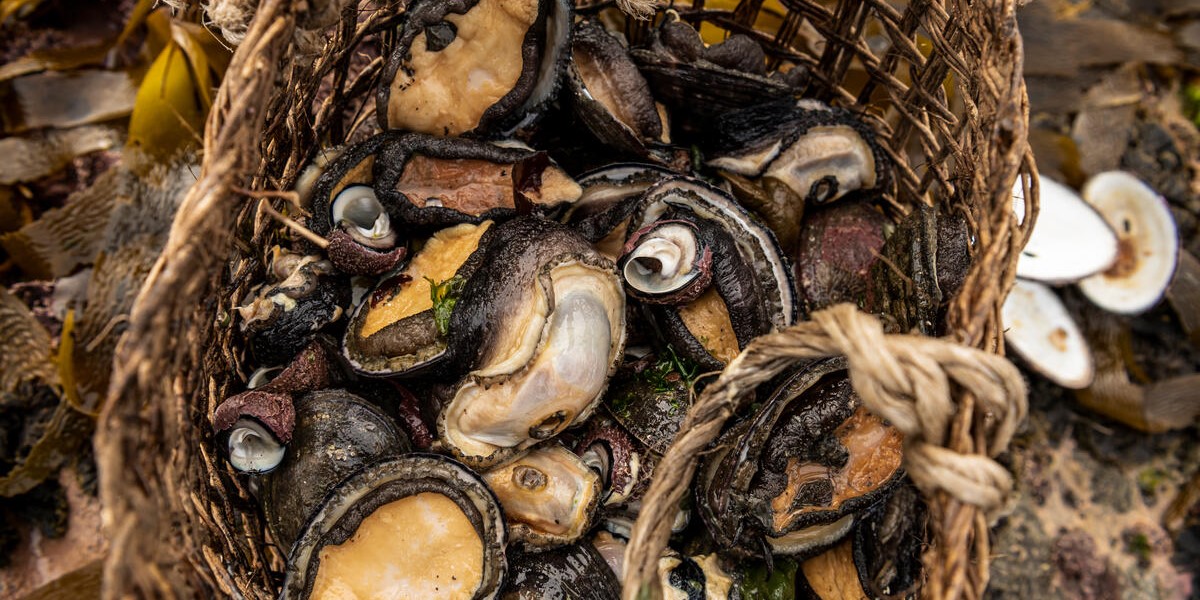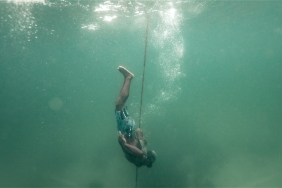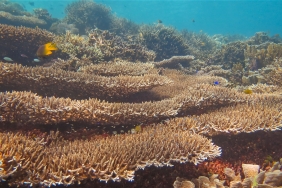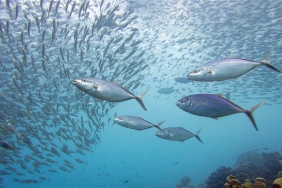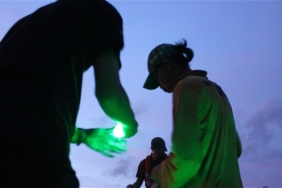WOMEN CHAMPIONING THE IMPROVEMENT OF SHELLFISH FISHERIES IN SURABAYA
The increasing market demand for environmentally friendly seafood also occurs in the shellfish commodity. JARING-Nusantara's corporate assistance program decided to provide assistance to local non-governmental organizations (NGOs) that focus on the shellfish commodity. Local NGOs will be assisted to implement fisheries improvement activities (Fisheries Improvement Program) based on the principles of the Marine Stewardship Council (MSC) standard.
Koalisi Perempuan Indonesia (KPI) from Surabaya is one of the local NGOs focused on improving fisheries practices for shellfish. It is composed of women who have the desire to improve shellfish fisheries to be realized. The women who are members of KPI also have diverse backgrounds, ranging from housewives who want to contribute to the environment to lecturers.
Their struggle to improve shellfish fisheries practices is not easy. They have to fight against the hard and materialistic nature of the local fishermen who are mostly men, the low knowledge of fishermen, especially reading and writing, and jealousy among fishing groups.
Their presence is often rejected, even opposed by a number of fishing groups. In addition to obstacles from fishermen, internal obstacles in the form of limited human resources complement the existing obstacles. However, this did not dampen the enthusiasm of these East Java KPI women, with direction and assistance assisted by JARING-Nusantara, they slowly made efforts to improve activities and management of shellfish.
Scallop fishermen in Surabaya collect scallops with "garuk" fishing gear (dredges). Ecosystem-wise, scratching is destructive because it stirs up the bottom of the water. However, the habitat of shellfish is muddy sand, not areas of coral reef cover.
unhygienic and rough processing
So far, fishermen have been processing clams in a makeshift manner. After being caught, the clams are only washed using water and boiled with the remaining water from the previous stew. This is certainly unhygienic, because the clams are very vulnerable to contamination with bacteria (E.Coli).
Often fishermen also skip the stage of sorting the size of the clams according to the size of the clam catch. Scallops are also only sold directly by fishermen to middlemen and no longer processed into other products. These things encourage KPI to approach and improve the management of scallops there.
KPI Woman Gets Fishermen's Heart
The one-year approach finally paid off. Fishermen are willing to accept KPI's presence and form a clam fishermen group that cares about improving clam fisheries. Previously, fishermen did not pay attention to hygiene aspects, now the clams are washed and boiled with new cooking water and are more aware of the cleanliness of the clams.
Not only that, a fisherwomen's group was also formed to serve as a cadre and record logbook and process clam catches according to standards and feasibility, this cadre also managed to process clams into various kinds of food, such as shredded clams, nugget clams to clam jerky.
Cooperation was also carried out with Airlangga University in the form of research on aspects of habitat, ecology, biology and morphology of mussels and even succeeded in lobbying Airlangga University to assist fishermen in Sedati until 2015!
Now KPI is able to stand on its own, after previously JARING-Nusantara helped assist the improvement of clam fisheries. Group mentoring and training on hygiene and sanitation of shellfish management in collaboration with Airlangga University continue to be carried out to improve fisheries practices.
The slogan "For Justice and Democracy" continues to encourage KPI women to fight for the justice and democracy of local scallop fishermen, as well as the realization of MSC-compliant scallop fishery practices.
Happy Woman's International Day 2015!
Author: Windy Rizky (Capture Fisheries Officer)

